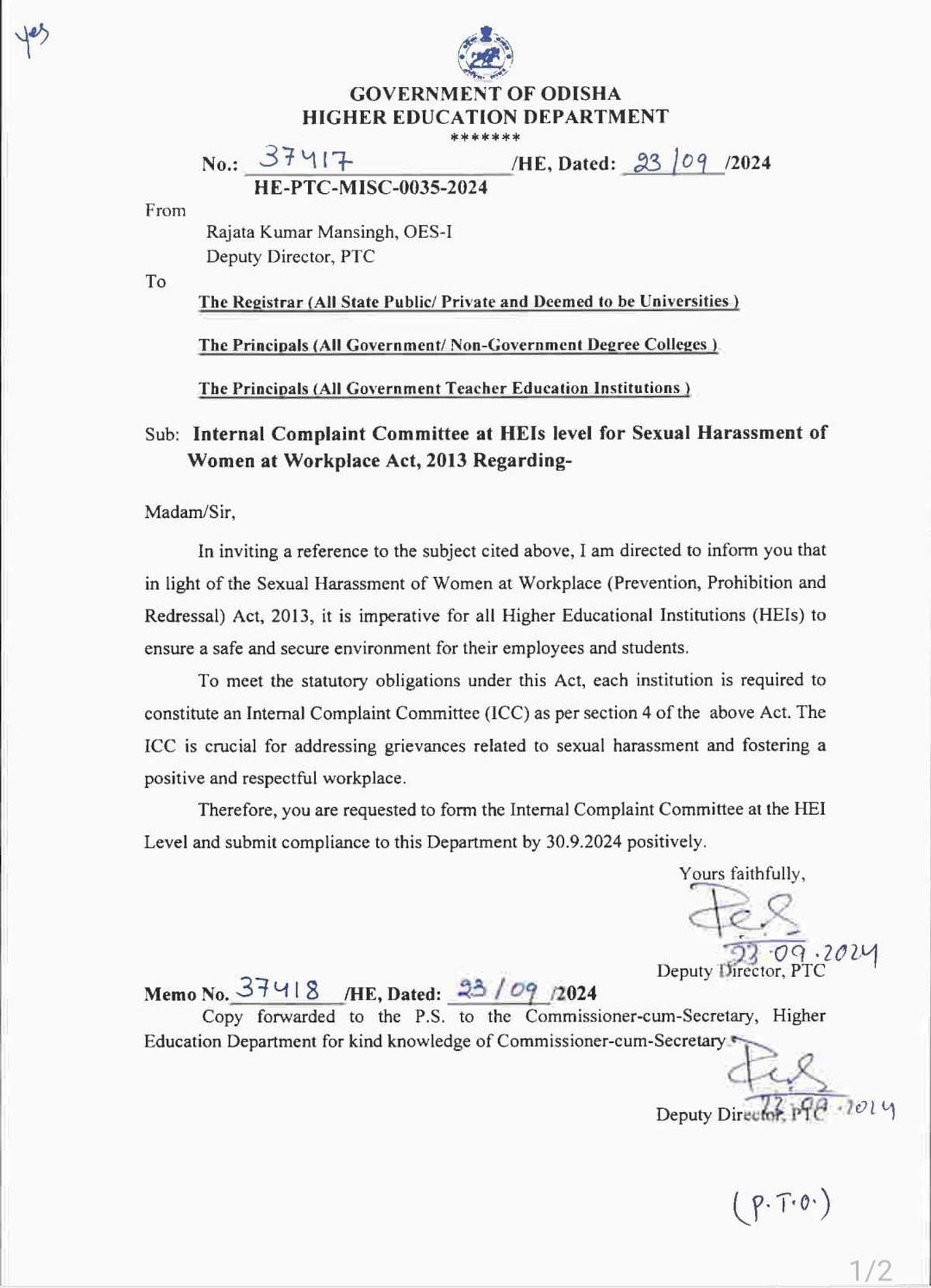Disha Tandon, Pune
Odisha government has called up all public and private universities, colleges, and teacher education institutes to constitute Internal Complaint Committees by September 30, 2024, for safeguarding women’s rights on campus. This call has followed an incident of an alleged sexual harassment at an influential state-run university- Utkal University, Odisha.
The Higher Education department issued an order on Monday that demands adherence to the Sexual Harassment of Women at Workplace (Prevention, Prohibition, and Redressal) Act, 2013, and asks the institutions to present compliance reports by deadline to have it ensured as per legal requirements.
Preventive Measure After Utkal University Case
The requirement for stricter enforcement of anti-harassment laws increased after an incident at Utkal University, where a female student accused a faculty member of sexual misconduct. The ICC of the University then investigated the complaint, which led to the suspension of the accused faculty member based on the discoveries made.
The state government has responded by campaigning for the necessity to act holistically toward providing safer learning environments and ensuring each and every HEI throughout the state conforms to the legal framework surrounding sexual harassment.
ICC Formation Mandated by Law
The Sexual Harassment of Women at Workplace Act, 2013 says that ICC will be established in every institution. The committee must ensure that it has a presiding officer who is a woman employee of the institution of senior rank. It must have two other staff members from amongst others appointed by the employer. It is moreover mandatory that at least half women constitute the committee.
These committees play an important role in dealing with the grievances of sexual harassment complaints and make the workplace safe and respectful. The ICC gives a formal process that holds redress, enabling women to complain in an atmosphere of support.
A Safe Learning Environment
As the Odisha government has gone beyond mere establishment of ICCs, an important part is building an environment of respect and safety not only for students but also for employees. By enacting this, the state is ensuring that complaints regarding harassment are heard and dealt with both promptly and preventive measures against the future recurrences. This would also further go to represent an important step towards taking Odisha’s higher education department closer to the national legal standards regarding women’s safety. It is also the broader goal of ensuring a gender-sensitive environment in the pursuit of a healthy community. Institutions must have effective ICCs in all institutions by September 30, 2024. The institution will submit a compliance report to the Higher Education Department as an affirmation that the institution is countering sexual harassment within its HEIs.
